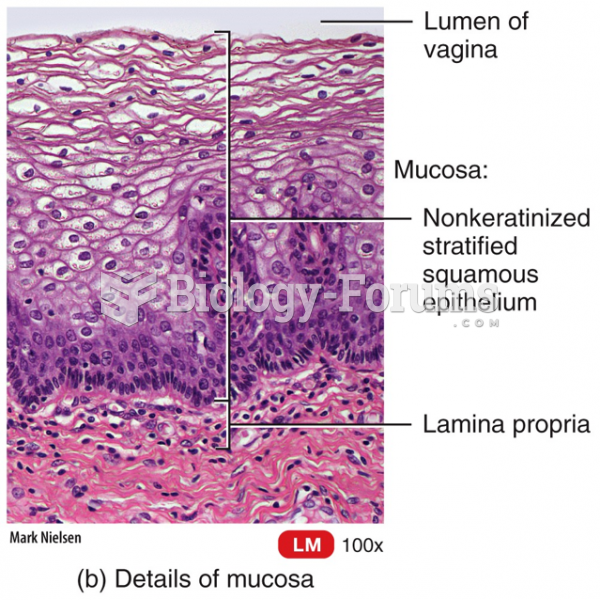This topic contains a solution. Click here to go to the answer
|
|
|
Did you know?
Many supplement containers do not even contain what their labels say. There are many documented reports of products containing much less, or more, that what is listed on their labels. They may also contain undisclosed prescription drugs and even contaminants.
Did you know?
Intradermal injections are somewhat difficult to correctly administer because the skin layers are so thin that it is easy to accidentally punch through to the deeper subcutaneous layer.
Did you know?
Most women experience menopause in their 50s. However, in 1994, an Italian woman gave birth to a baby boy when she was 61 years old.
Did you know?
About 100 new prescription or over-the-counter drugs come into the U.S. market every year.
Did you know?
On average, the stomach produces 2 L of hydrochloric acid per day.







